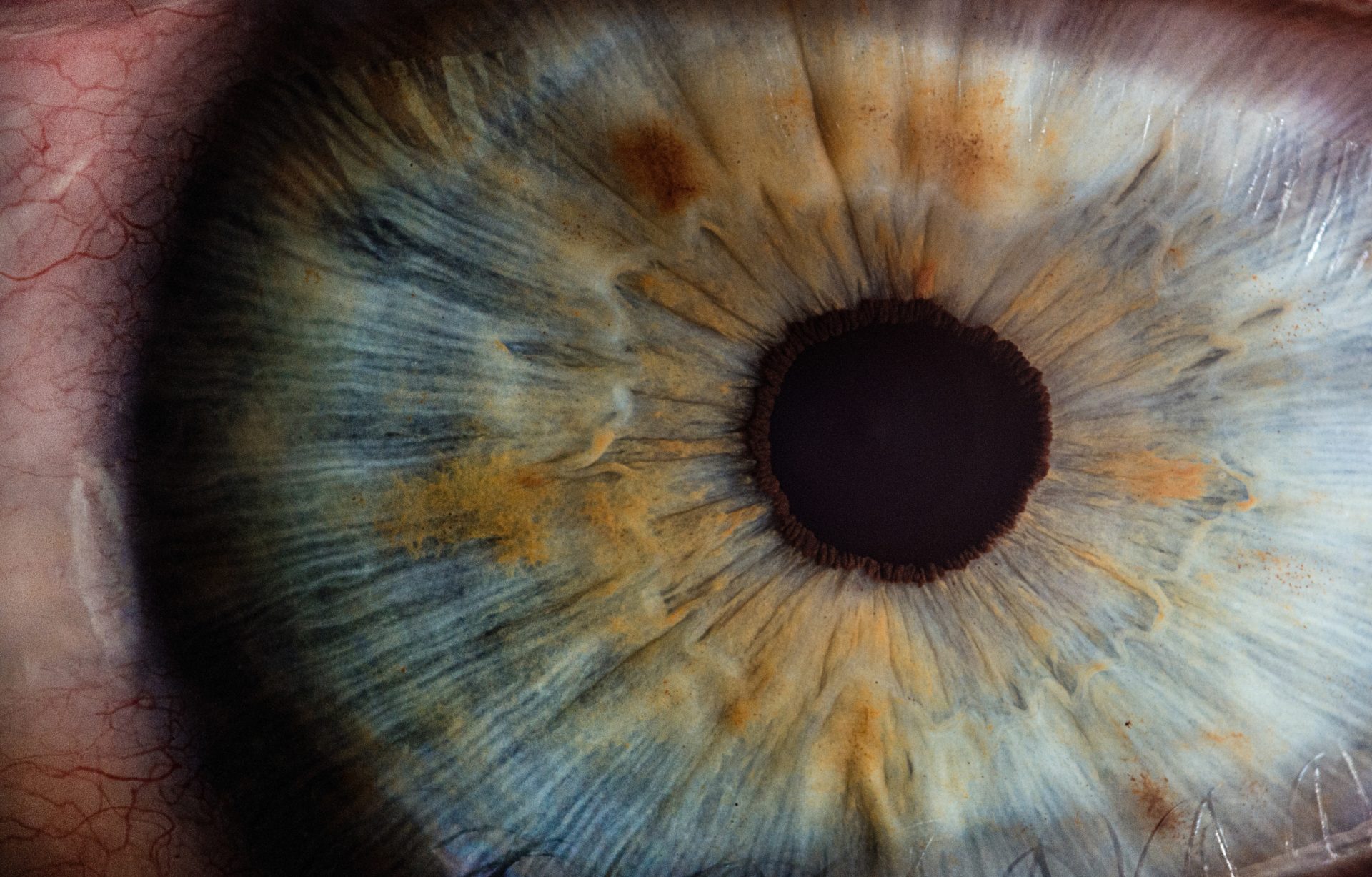What is cataract?
A cataract is a clouding of the natural focusing lens inside your eye. Your lens sits just behind your pupil. Normally your lens is clear and helps to focus the light entering your eye. Developing cataracts will cause your sight to deteriorate, usually becoming cloudy and misty. Cataracts can affect one or both eyes and do not improve by themselves.
Cataracts can only be treated by surgery, during which the cloudy lens is removed and replaced by an artificial lens.
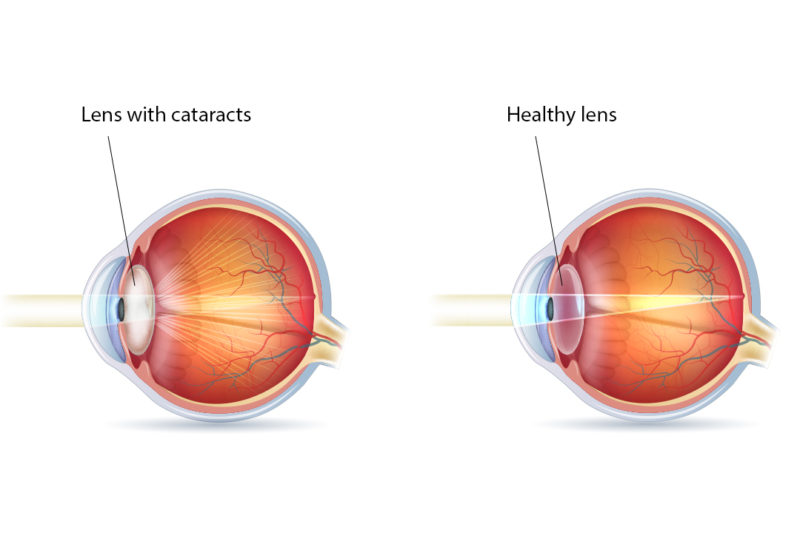
How do cataracts affect my vision?
Cataracts usually cause cloudy or misty vision but they can also cause glare and haloes due to light scatter. This can be particularly troublesome with night driving. You may have noticed that colours are less bright and have problems reading. Sometimes it causes frequent changes in your glasses prescription. Cataracts usually come on gradually and your eyesight will deteriorates over time.
How are cataracts removed?
Cataracts can only be removed by surgery. Cataract surgery is a quick, safe and highly effective procedure. It is one of the most successful and commonly performed operations in medicine.
Cataract surgery removes your cloudy lens and replaces it with an artificial lens. This lens is known as an intraocular lens implant or IOL and will not need to be changed for the rest of your life.
There isn’t any other effective treatment at present, no medicine or drops will treat cataract successfully.
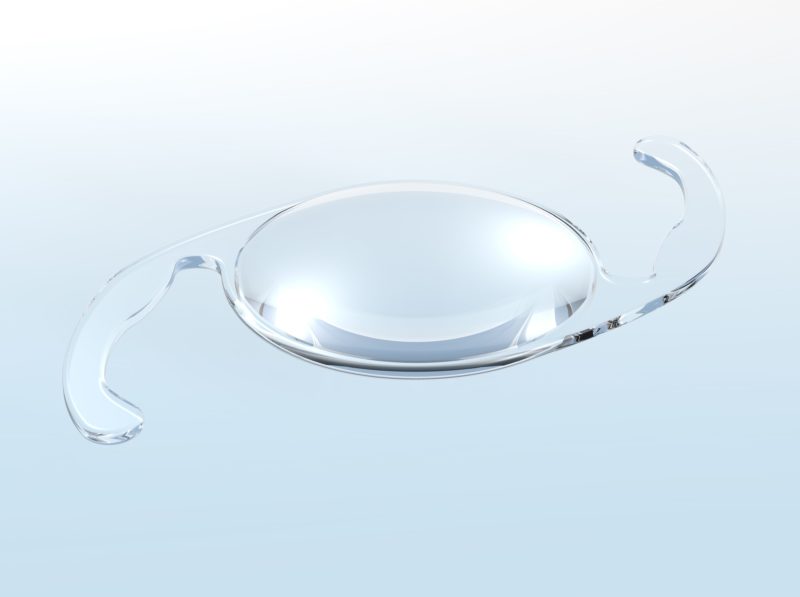
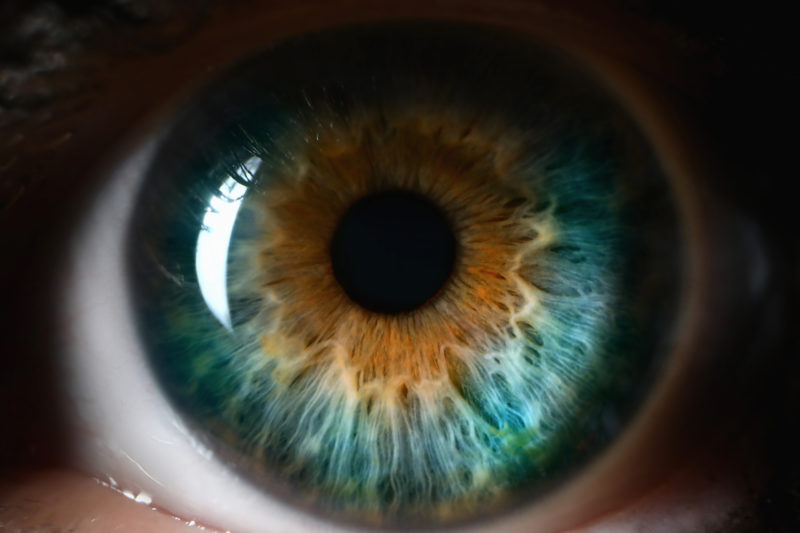
Keyhole microsurgery
At Sarum Vision we use modern “keyhole” microsurgery (phacoemulsification) techniques to perform the surgery. Our surgeons also practise in the NHS and have performed thousands of cataract operations and are subject to regular quality checks.
Nearly all of our cataract surgery is done by simply using drops to numb the eye (topical anaesthesia) with no anaesthetic injections required. At Sarum Vision we use the latest technology in our cataract surgery machines to improve safety and efficiency This makes the procedure more comfortable and recovery faster.
At Sarum Vision our experienced surgeons will guide you through the decision making process and help you to decide whether it is the right time for you to have surgery based, upon the type and extent of cataract and your visual needs.
What our clients say
What options are there with cataract surgery?
Cataract surgery represents a once in a lifetime opportunity to improve your vision and correct your glasses prescription at the same time.
Selecting the correct lens implant (IOL) is critical in achieving this. At Sarum Vision we have invested in the latest equipment to give us the highest degree of accuracy and safety currently possible.
Your surgeon will tailor your treatment to your visual needs. We can optimise your “3D” vision or give you “blended” vision with a range of focus. You may wish to use this unique opportunity to correct astigmatism and potentially to remove the need for any glasses at all, using cutting edge multifocal (trifocal) or Extended Depth of Focus (EDOF) IOLs.
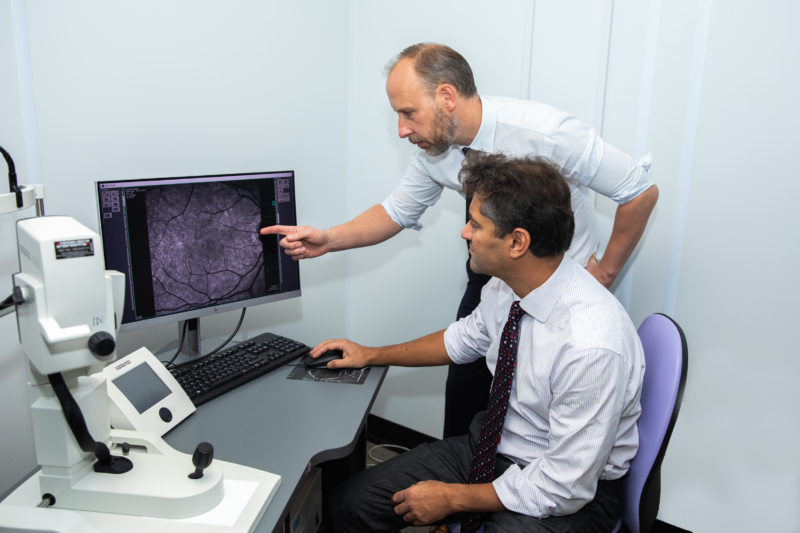
We look after you every step of the way
It is likely you will have questions about this treatment; feel free to browse our FAQ's below.
You will be given an appointment to see one of our Specialist Cataract surgeons for an initial consultation to help decide which cataract surgery solution is best for you.
You will be asked questions about your eye problems and general health. To allow your Consultant to do a complete check of your eye and examine the cataract you will have dilating drops applied which means that you will not be able to drive home from this appointment.
You will have tests to measure and scan your eye to help with your bespoke treatment plan. All of the equipment we use is state-of-the-art and ensures that your surgery is performed with the highest degree of accuracy and safety.
For your convenience, these tests would normally be done on the same day as a “one-stop” so there is no need to come back prior to the day of your surgery. All of these tests are quick, non-invasive and do not require any special precautions.
Your experienced Consultant will create a bespoke treatment plan specific to you and guide you through the decision-making process to ensure that you are entirely comfortable with your choices.
Monofocal cataract surgery
Cataract surgery represents a once in a lifetime opportunity to improve your vision and correct your spectacle prescription at the same time. Your surgeon will discuss your visual needs with you in detail and help you to choose the best solution for you.
Selecting the correct lens implant (IOL) is critical in achieving this. At Sarum Vision we have the latest equipment to measure your eyes with the highest degree of accuracy currently possible to help advise you on the best type of implant for your visual needs. Standard cataract surgery involves using “monofocal” IOLs which correct for either distance or, less commonly, reading. Most patients undergoing monofocal cataract surgery choose to be spectacle free for distance and wear glasses for reading.
We are also able to optimise your “3D” vision or give you “blended” vision with extended depth of focus. Most patients are delighted by the improvement in their vision with monofocal cataract surgery.
Enhanced IOL cataract surgery
Depending on your visual needs it may be appropriate to perform enhanced surgery using cutting edge technology to correct astigmatism or even achieve spectacle independence without the need for glasses at all. This type of enhanced surgery uses the latest toric, multifocal (trifocal) or Extended Depth of Focus (EDOF) IOLs.
Each of these solutions are designed to meet specific visual needs and our experienced surgeons will guide you every step of the way to ensure you make the right choice.
All of our surgery is performed as “daycase” surgery. This means that you attend and go home on the day of the operation usually within a couple of hours.
You will be welcomed by one of our team and checked prior to going through for surgery. Our friendly team will be with you every step of the way to put you at ease and make the day of your surgery as pleasant as possible. At Sarum Vision we create a bespoke surgical treatment plan for each of our patients from your initial consultation to your post-operative follow-up; because of this, we are able to offer a highly efficient service and make the day of your operation run smoothly. We are able to provide you with relaxing music of your choice during your surgery and afterwards our friendly staff will ensure that you have some refreshments and are relaxed prior to being discharged. At Sarum Vision we use the latest technology in our cataract surgery machines to improve safety and efficiency. This and the modern “keyhole” technique means that nearly all of our patients are able to go home a short while after surgery and resume most normal activity within a few days of the surgery.
Because we use modern techniques and eye drops for anaesthesia the majority of patients will achieve “20/20” vision within a few days and often the day following surgery.
Before you go home on the day of surgery one of our friendly team will go through the dos and don’ts for allowing the eye to heal after surgery. You will receive a telephone call within the first couple of days after your surgery and normally an appointment to see your surgeon between one and four weeks after the operation.
You will have 24 hour, 7 day a week access to advice if needed however the majority of our patients are amazed by how quickly and painlessly the eye settles.
We advise you to make arrangements to avoid driving for the first week after surgery however if you meet the DVLA driving standard you are able to drive sooner than this as long as the eye is comfortable and not light sensitive. If you are in any doubt please call us for advice before driving.
This depends on your eyes and your visual needs. Most patients, even with surgery using a monofocal IOL, would not need to wear glasses for distance tasks such as driving but would need glasses for reading. Enhanced cataract surgery potentially allows spectacle independence with no glasses needed at all. Our experienced surgeons will be able to help you decide which is the best solution for your visual needs and create your individual treatment plan.
Further information on cataracts is available on the Royal College of Ophthalmologists website:
https://www.rcophth.ac.uk/wp-content/uploads/2017/10/2017_Understanding-Cataracts.pdf
If you have an initial Consultation with one of our surgeons but are unsure about whether to proceed with surgery, should you later decide to go ahead with surgery the costs of your initial consultation and tests will be deducted from your surgery package price.
Package prices for cataract surgery all include:
- Your initial consultation with the Consultant
- Any additional tests required as a result of your consultation
- Pre-operative measurements to design your bespoke treatment plan
- The surgery itself
- Post-operative drugs
- One post-operative visit or any additional visits if deemed necessary by your Consultant
- Any further treatment related directly to the surgery itself
Prices for cataract surgery:
| Initial “one-stop” cataract consultation | £250 (plus £200 for tests) |
| Monofocal IOL cataract surgery | from £2950 |
| Follow-up consultation | £160 |
Package prices:
Monofocal IOL surgery
| One eye | £3300 |
| Both eyes | £6250 |
Enhanced IOL surgery (the cost depends of exact IOL)
| One eye | from £4200 |
| Both eyes | from £8000 |
Of course we are happy to see you if you would prefer just an assessment for cataracts and expert advice on whether surgery is the right choice for you.
Cataract assessment would involve an initial Consultation with one of our surgeons and usually two tests.
Remember, you will never pay twice! If you have an initial Consultation with one of our surgeons but are unsure about whether to proceed with surgery, and you later decide to go ahead with surgery the costs of your initial consultation and tests will be deducted from your package price for surgery.
